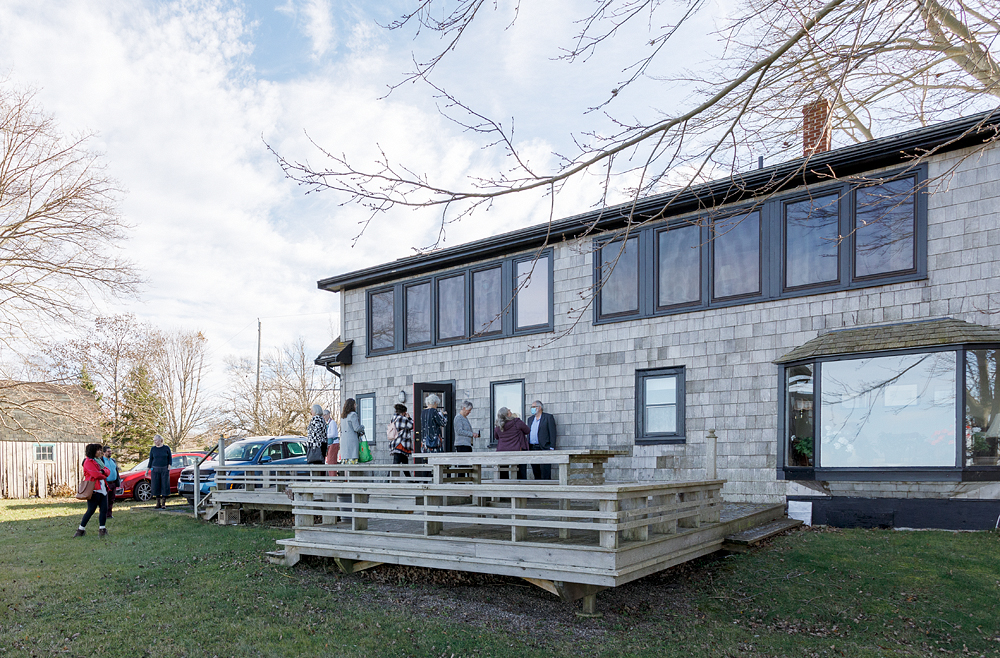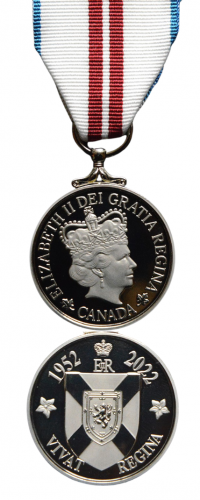
Presentation of Queen Elizabeth II Platinum Jubilee Medals
On Sunday, November 27, the Writers’ Federation of Nova Scotia held an investiture ceremony for ten Queen Elizabeth II Platinum Jubilee Medals.
These medals were created through the Lieutenant Governor of Nova Scotia’s Office to honor 5,000 exceptional Nova Scotians who have given their time and talents in service to our community. WFNS was invited to nominate 10 individuals for the honour and chose recipients based on their service to the literary arts in Nova Scotia and to our organization.
The event was held at Jampolis Cottage in Avonport, NS, home of WFNS’s new Jampolis Cottage Residency Program.
Below are the citations for the 10 exceptional people presented with the honour.
- Through her generosity and love of poetry, writer Janet Barkhouse initiated the creation of a new Nova Scotian poetry award in 2020, since named in honor of the late Maxine Tynes, to recognize the best book of poetry written by a Nova Scotia author.
- Gavin Brimer has nurtured the Atlantic Canadian children’s literature scene by investing and growing the Ann Connor Brimer Award for Atlantic Canadian Literature, an annual book award named in honor of his late mother.
- Sylvia Parris Drummond is the CEO of the Delmore “Buddy” Daye Learning Institute, an important partner for the Writers’ Federation of Nova Scotia. Her work in education and the community is rooted in core Afrocentric principles.
- Known informally at the Writers’ Federation of Nova Scotia as “Madame Ambassador,” Sylvia Gunnery has played a crucial role at the Fed, by acting as a mentor, workshop instructor, author in Writer in the Schools, and president of the WFNS board. She epitomizes the spirit behind our motto: “writers helping writers.”
- Mike Hamm and the staff at the local independently owned bookstore Bookmark made extraordinary efforts during the pandemic to keep people reading. During lockdown, the bookstore offered bicycle delivery and curbside pick-up. Writers are forever in their debt.
- Co-manager of the independent bookstore Woozles, Suzy MacLean and her team likewise made a huge effort during the pandemic to put books in the hands of young people and to keep them reading during school closures and isolation from friends.
- Canadian poet, ethnographer and essayist, Lorri Neilsen Glenn worked during her tenure as Writers’ Fed president to create and nurture a new prize for emerging women writers and writers of marginalized genders. Named for Elizabeth Venart, this prize will have a lasting legacy at the Writers’ Fed.
- A former president of the Writers’ Federation of Nova Scotia, Kim Pittaway led the organization back to a state of vitality and financial stability. And she did so while heading the ground-breaking MFA in Creative Non-fiction program at the University of King’s College.
- With his father, the late Thomas Raddall, Thomas Raddall III has nurtured and sustained an important legacy for fiction writers in Atlantic Canada through the Thomas Raddall Atlantic Fiction Award, a $30,000 prize which provides “the gift of time and peace of mind.”
- As a president of the Writers’ Federation of Nova Scotia during the start of the lockdown in 2020, poet Matt Robinson helped the organization to adapt by pivoting online, and in so doing, allowed the WFNS to flourish and expand service to writers during an unprecedented time of change.

